Montessori vs. daycare: what is the difference for your toddler?
Here’s a difference parents often ask when they come to tour at LePort: What are the main differences between a high-quality Montessori toddler program, and a traditional daycare center?
Our first answer is this: seeing is believing! Come in for a tour at LePort, then compare what you see to your observations at a traditional daycare. If you haven’t toured yet, please contact us to schedule a tour and observation.
When you come in for a tour, or if you reflect on a tour you may have recently gone on at a daycare center, here are some difference to note between Montessori for toddler and daycare:
- A focus on child-led exploration, vs. adult-set group activities. Typical daycare centers have adult-set schedules in which children are shuffled into a new activity every 20-40 minutes: circle time, followed by art, followed by outside play etc. Typically, the whole group is required to move together from activity to activity, whether they’re engaged in the current activity or not. Instruction happens in a group setting, at a group pace, even if some children move more slowly or more quickly. In contrast, the Montessori toddler program supports a child’s budding independence and his self-discovery. Children have the luxury of time to choose their own activities, and to fully explore them at their own pace. Most instruction is one-on-one: teachers give short 5-minute presentations to individual children, after which they are given an opportunity to continue practicing until they’re satisfied.
- A calm, orderly environment, vs. a messy, noisy place. Many daycare settings have a high noise level, and some seem proud to announce how messy they are! While there is a time for messes (we love for children to play in the mud, to finger paint, or explore foam), in general, the Montessori toddler environment is surprisingly calm and orderly. Since our goal is to enable children to learn to focus, to engage joyfully in a chosen activity, we need to provide them with an environment where they can do so without constant interruption and distraction!
- A 1:6 ratio, vs. a 1:12 ratio. Most daycares in California switch to a 1:12 ratio at age 2, to save money. A 1:12 ratio, unfortunately, makes it all but impossible to provide a quality learning experience for toddlers. At age 2, a child can’t yet dress himself independently; he still needs help using the toilet; he isn’t able yet to clean up independently after play. By necessity, a 1:12 ratio means adult have to do these things for the children: there just isn’t the time to teach! In contrast, at LePort Montessori, we maintain a 1:6 ratio (or in limited cases a 1:7 ratio) all the way to age 3. This enables us to actually teach our students: to support them in toilet learning, show them how to dress themselves, and engage them in individual lessons with the many activities on the Montessori shelves.
- Trained teachers, vs. revolving-door daycare providers. Most childcare staff have minimal training (often, just the 12 Early Childhood Education Units required by law.) Many daycare centers have high staff turnover as poorly trained and poorly paid daycare providers get burned out with the challenge of managing 12 toddlers. In contrast, at LePort Montessori, our lead teachers either join us with a Montessori teaching credential, often from an AMI training program, or complete their training while employed with LePort. The LePort head teacher turn-over is below 10%, a number unheard of in typical daycare settings!
- Oversight by a Montessori-trained Head of School, vs. administrative management. Each LePort Montessori campus is lead by a Montessori-trained Head of School. This experienced master teacher has the full time job of monitoring all the classes at campus and ensuring consistently high standards. The Head of School regularly observes in all classrooms, provides feedback to teachers to help them improve their practice, and actively works with parents to resolve any student issues. In contrast, most traditional daycare centers are run by administrators, not by educators. (In addition to the Head of School, LePort campuses have one or two additional administrative staff whose job is to meet parent needs and address operational tasks, so that the Head of School can truly focus on maintaining high classroom standards.)
- A deliberate, educational program, vs. all-day play. We agree that free play is important to children, and encourage parents to provide imaginative play activities at home. At the same time, we know that in the right environment, toddlers are eager to learn through exploration and practice. Toddlers in a Montessori program are surrounded by exciting opportunities to develop their skills: they practice opening and closing containers; they learn to button shirts; they identify objects by touch, sort things by color, transfer items with spoons, learn to pour water, put together puzzles, learn to cut with scissors, sew with laces, string beads, and so much more! The activities we offer in the toddler class provide a welcome change from what children typically find at home. This is in contrast to many daycare settings, where shelves and boxes are full of the same things your child already has at home—Duplo legos, blocks, wooden trains, cars, dolls, dress-up cloths, noisy plastic toys, and the like.
- Grace and courtesy, vs. group conformity. Many parents want their child to become socialized when they enroll her in a daycare or preschool program. But “socialization” can mean different things in different settings. In a Montessori toddler program, we guide children to develop what we call grace and courtesy. We establish some clear rules that support a peaceful classroom: for instance, children may only take activities from shelves, never from another child. We give children the language they need to express their needs (“I am working with this; you may have it when I am done,” “I don’t like it if you talk loudly,” or “I feel angry because you messed up my work.”) Teachers model benevolent and cooperative behavior, for example, by shaking hands while looking into a child’s eyes as the child comes to class, or demonstrating how we politely offer food to a friend at snack time. The Montessori focus on teaching individual, pro-social skills is different from the group conformity at many daycare programs, where developmentally inappropriate skills, such as sitting still for an extended circle time, or indiscriminate “sharing” of toys may be expected from toddlers, without regard for the actual cognitive and emotional needs of the child.
- A focus on developing inner discipline, vs. obedience training. In Montessori, the goal is to help children acquire self-discipline: we want children to understand the right course of behavior, and to be internally motivated to behave well. Our teachers don’t expect immediate obedience from toddlers, nor do they offer rewards (praise, stickers etc.) for good behavior, and punishment (time outs, for example) for bad behavior. Instead, we believe that children naturally want to do and be good, and that by setting up the right environment, and modeling kind, respectful behavior, we can guide your child to develop inner discipline. When a child does misbehave, we emphasize positive alternatives. For example, when a child runs in class, we don’t chide him, “No running in class!”; instead, we calmly explain, “We walk in class. Let’s go back and walk to the sink together.” And because we have mixed aged classrooms, older returning students are able to model healthy behavior; younger children benefit from the example of their older peers, and older children benefit from the opportunity to mentor and guide their younger peers.
Does our Montessori approach work? We invite you to come and see for yourself! Most parents are astonished to see how calm, capable, confident and serenely happy the children in our Montessori toddler rooms are. If you doubt that your own rambunctious, active toddler could ever be like that, rest assured that the children you now observe calmly seated eating snack together came to us no different than your child. The Montessori toddler environment really is that different for other daycare settings, and that’s why Montessori children behave differently, too!


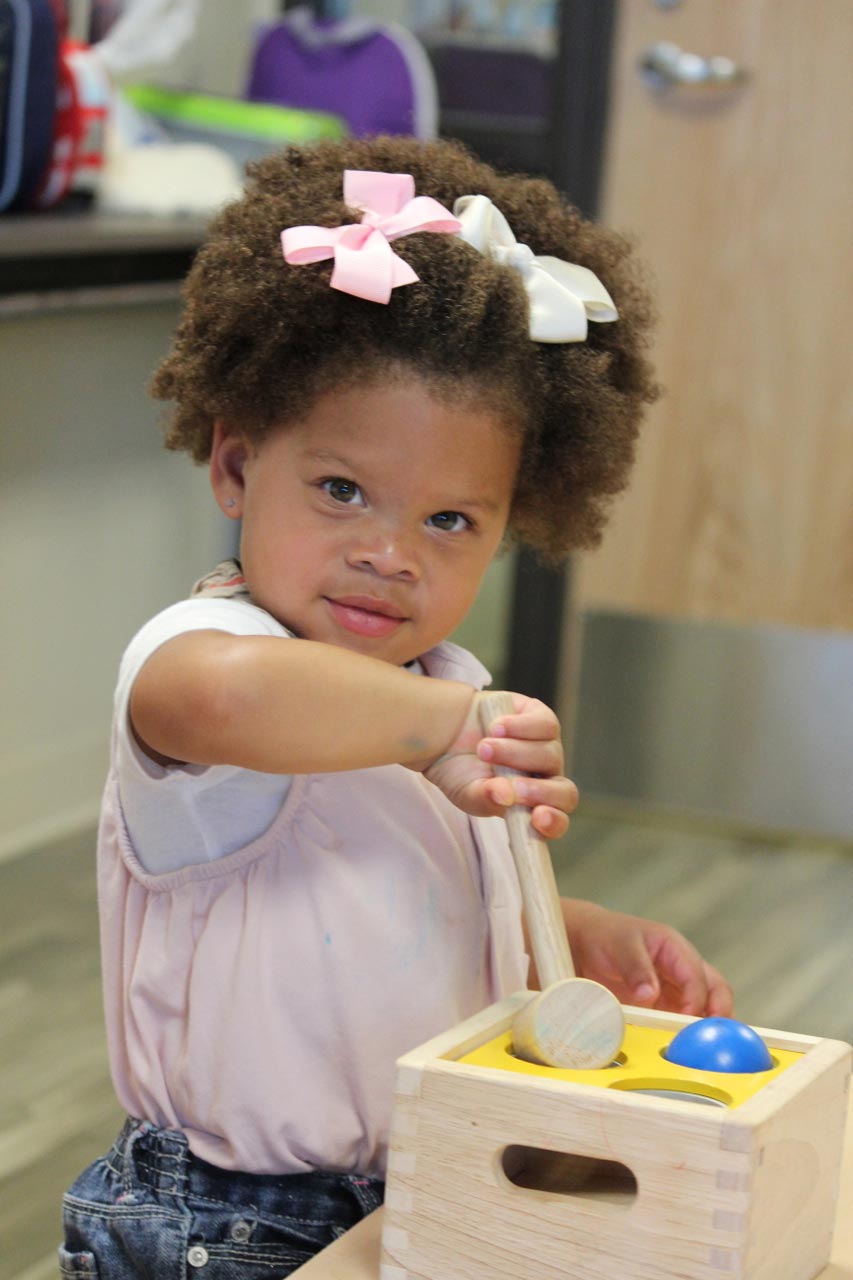
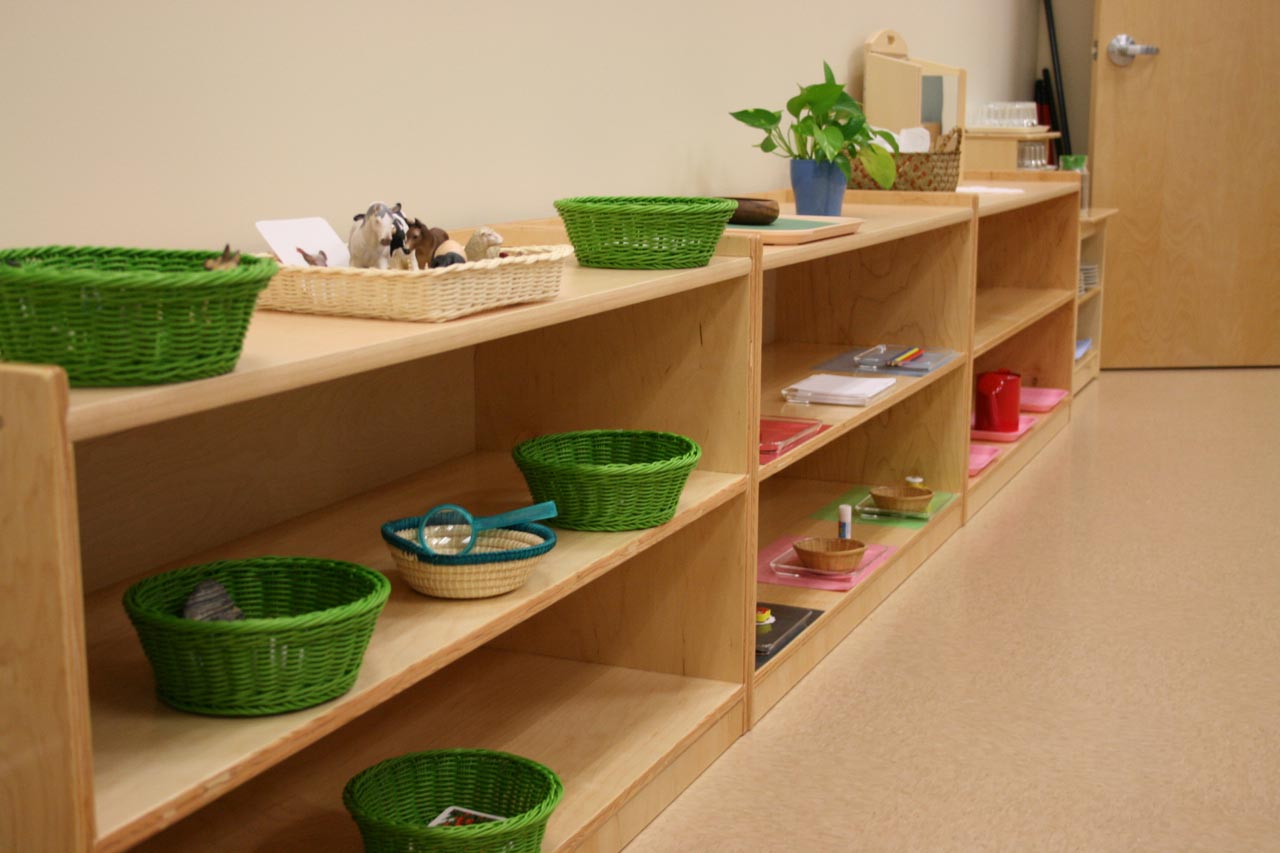
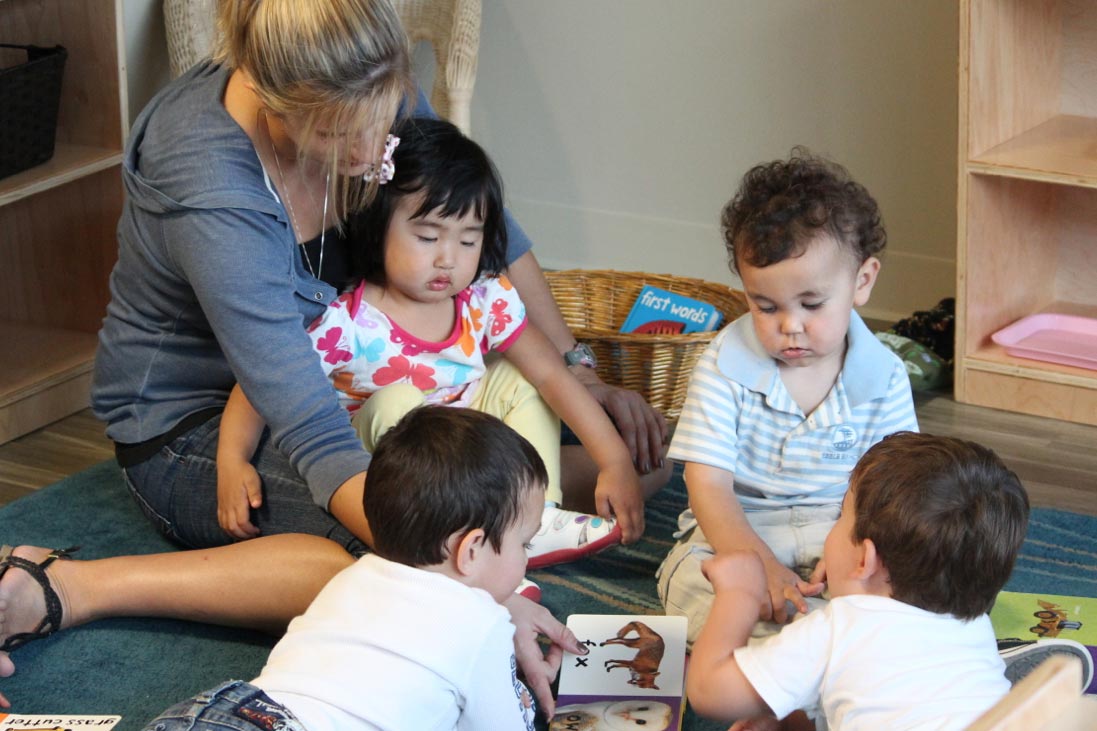
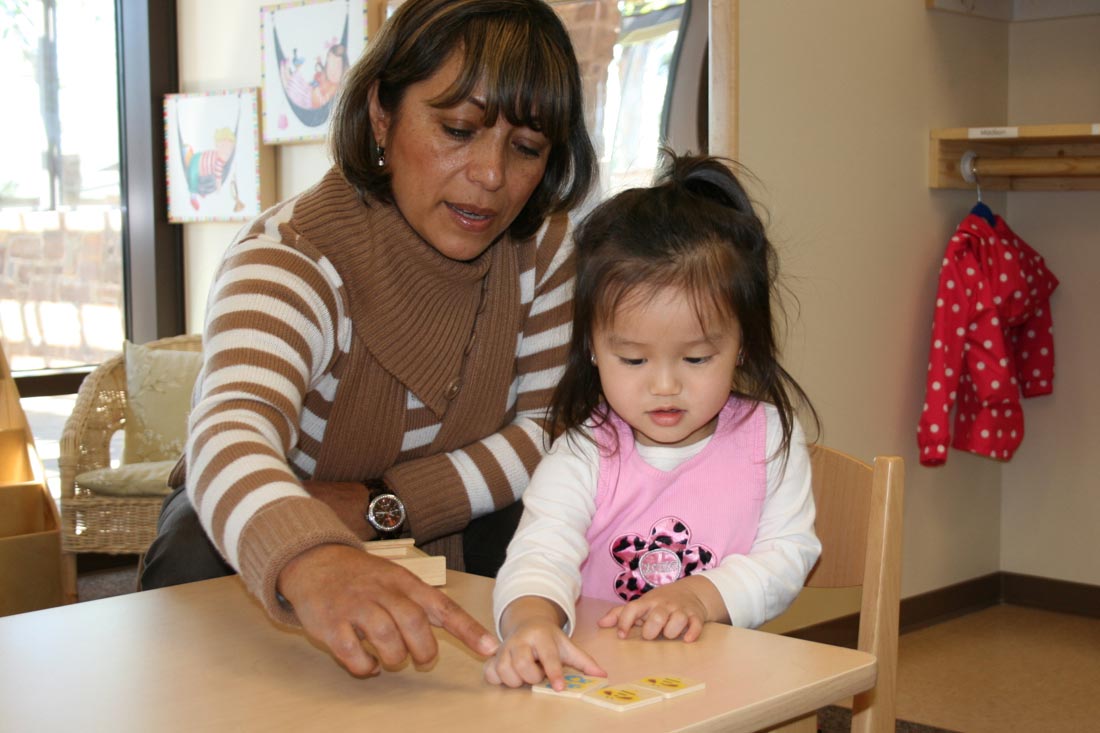
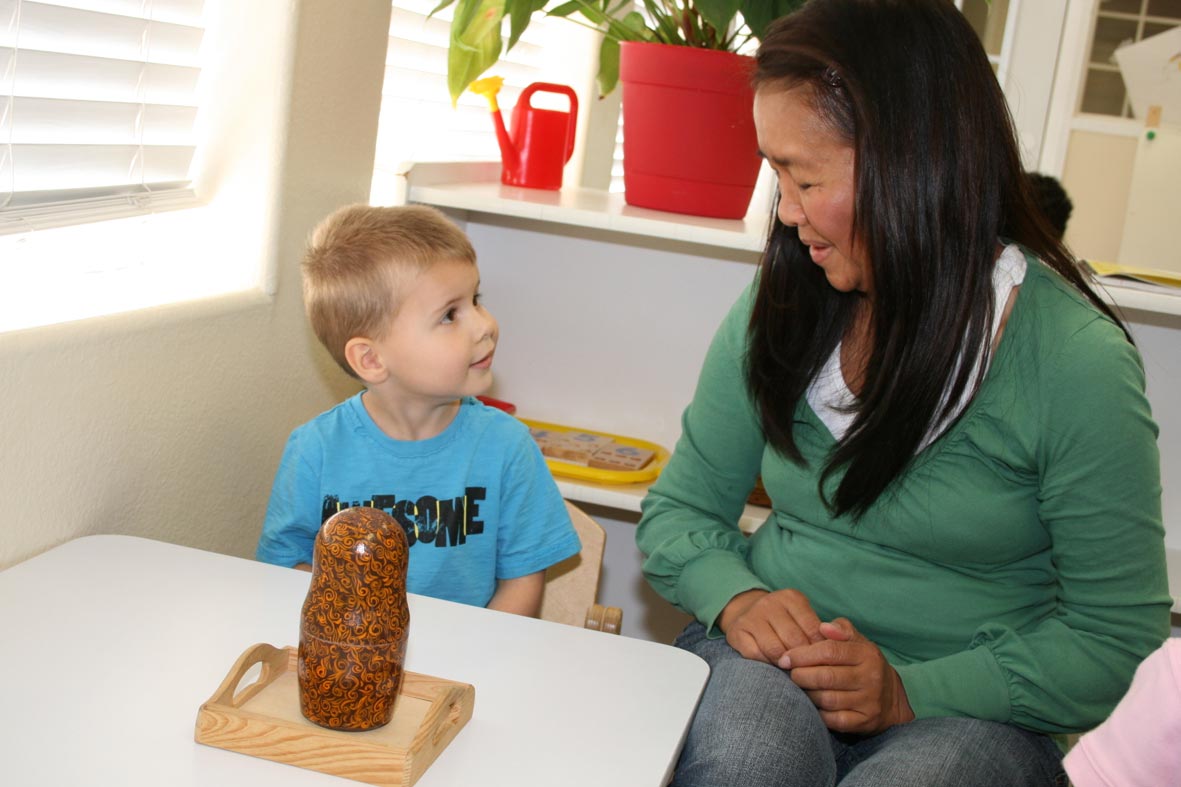
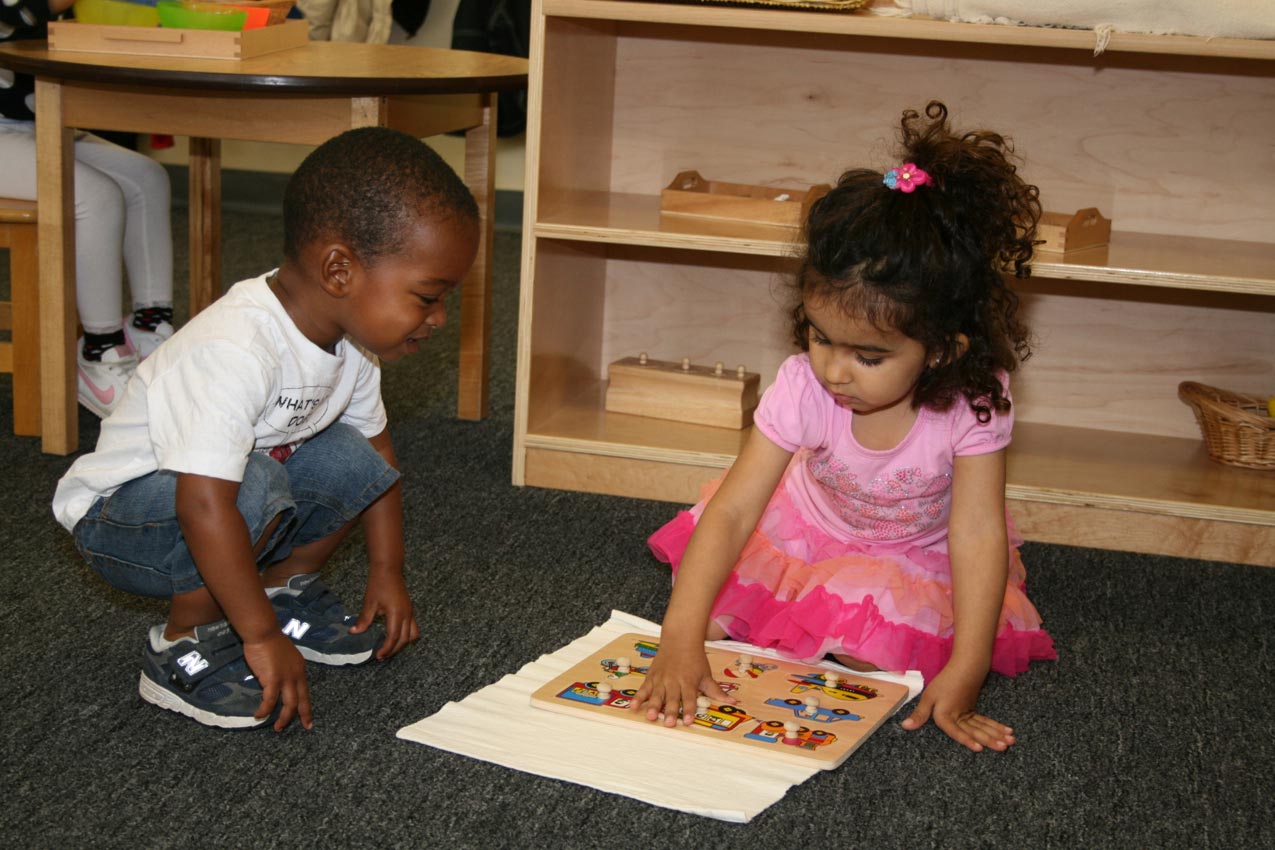
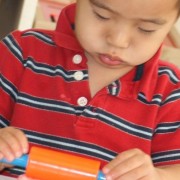
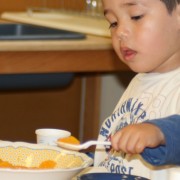
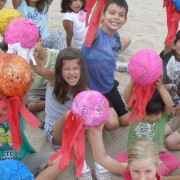
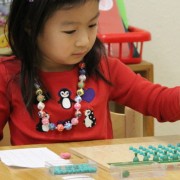
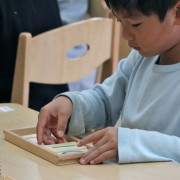
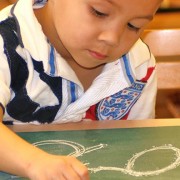
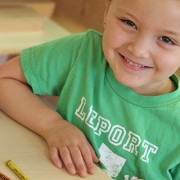
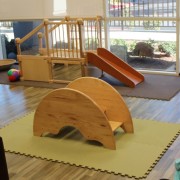



The emphasis on respect (self respect and respect of others) along with finding its own motivational resources is extremely convincing and attractive. Those being the basic quality of great human being that thrive not only in educationalenvironment but also in life!